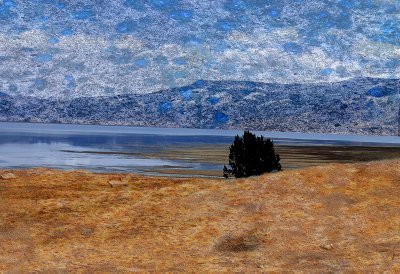
Digital Painting #191
Copyright © by David Memmott. All rights reserved.
|
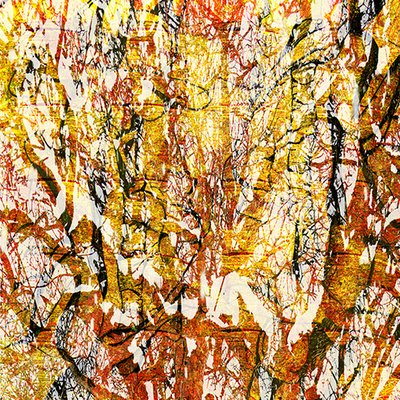
Digital Painting #199
Copyright © by David Memmott. All rights reserved.
|
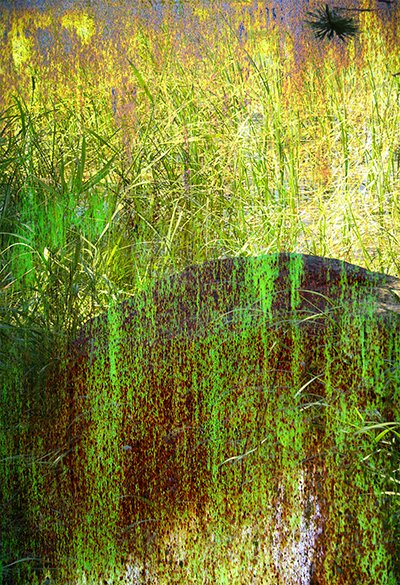
Digital Painting #220
[from a Jubilee Lake photo outing, summer 2016]
Copyright © by David Memmott. All rights reserved.
|
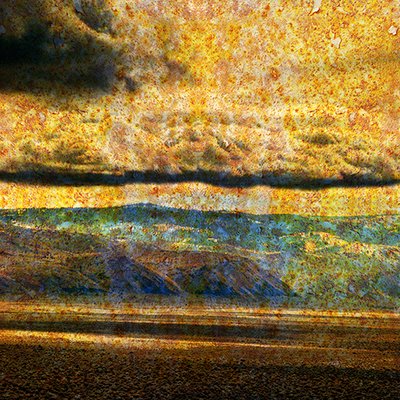
Digital Painting #233
Copyright © by David Memmott. All rights reserved.
|
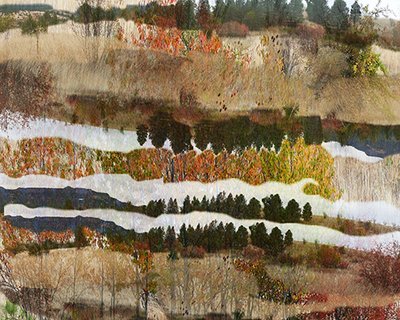
Digital Painting #246
[based on photos taken at Badger Sett in Cove, Oregon]
Copyright © by David Memmott. All rights reserved.
|
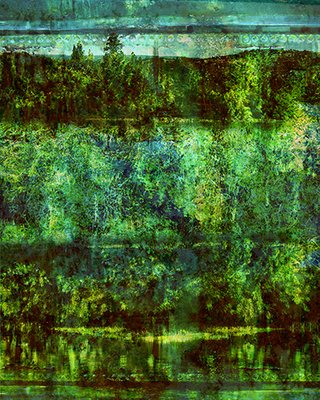
Digital Painting #247
[based on photos taken near Hood River
in the Columbia Gorge, August 2016]
Copyright © by David Memmott. All rights reserved.
|
Digital Painting #289 is a smaller painting featured in the SHJ:16 Table of Contents.
These seven images are reproduced in SHJ:16 with Memmott’s permission. To see others, please visit his gallery online, Shapeshifter Ink, where more than 200 digital paintings are available for purchase as special prints and/or printed canvases.
Artist’s Statement: Subjective Regionalism
Eastern Oregon and the Pacific Northwest nourish my imagination. Various communities within the region stimulate my mind and feed my body. Friends and family have opened my heart and being local resonates from every turn in the road, at every bend of the river. The common ground we commonly seek will always be ‘subjective.’ Though made of local materials that sustain our practice, my art is both invented and learned, inherited or awakened through epiphany. I keep returning home long after I build one. I call these digital paintings subjective regionalism as they draw their inspiration not from pure abstraction but from the landscape, from the patterns, shapes, textures, and colors of my region, and using these in a practice of imaginative play using collage, layering, blending, and other digital tools. The process has evolved, from work produced from photographic studies done during a four-week residency at Playa Institute at Summer Lake, Oregon, on the northern edge of the Great Basin in 2012.
David Memmott is the author of nine books (six collections of poetry, two novels, and a collection of short stories), including Canned Tuna, a Vietnam-Era fabulist anti-war novel which is forthcoming in 2017 from Redbat Books’ Pacific Northwest Writers Series. Also forthcoming in that series in 2018, an over-size art-book collection of his digital art, poetry, and prose: Alchemy Doesn’t Begin With Gold.
His poetry collection Lost Transmissions was published by Serving House Books (2012) and was a finalist for the Eric Hoffer Award. The Larger Earth (Permeable Press, 1996) was selected as one of 150 best poetry books for 150 years of Oregon statehood by Poetry Northwest and Oregon State Library. His long narrative poem Where the Yellow Brick Road Turns West was a finalist for the 2010 Spur Award for Best Western Poem of 2009, and is available on Web del Sol through the Poets and Writers e-chapbook series edited by Walter Cummins and Thomas E. Kennedy.
Memmott’s work is anthologized in, among others, Deer Drink the Moon: Poems of Oregon (Ooligan Press, 2007), Nebula Awards 27 (Harcourt Brace, 1993), and Year’s Best Fantasy & Horror (St. Martins Press, 1991); and appears in such journals and magazines as these: Airfish, Elohi Gadugi Journal, Fiddleback, High Desert Journal, Interzone, Magazine of Speculative Poetry, Serving House Journal, The Temple, Windfall: A Journal of Poetry of Place, and World Wide Writers.
He is a Fishtrap Fellow, Rhysling Award winner, recent Playa Resident, and recipient of three Fellowships for Publishing from Literary Arts, Inc., for his work at Wordcraft of Oregon, the press he founded in 1988. A resident of La Grande, Oregon, Memmott also helps organize the Eastern Oregon Word Round-Up and the Roundhouse Reading Series, and serves as a consulting editor for Phantom Drift: A Journal of New Fabulism.
“
...it’s not easy to lift sci-fi to the level of literature, but Memmott has done it in brilliant fashion in PrimeTime. [...]a work that imagines a world so completely absorbed in science, so smothered in technology, that the boundaries of what is real and what is virtual reality are blurred beyond recognition. The year is 2031 and science has created multiple layers of consciousness and states of being that can be bought, adopted, used and discarded at will. Drugs can give you any mood you desire; holograms can fashion whatever surroundings you wish to imagine; genetic manipulation can keep you young, vibrant, sexually vigorous, ambitious, or tranquil. You can even be ‘resurrected’ if you have resurrection insurance....
”
|
|
— Duff Brenna, award-winning author of six novels
|
|
• Duff Brenna’s review of PrimeTime in SHJ:16
• Additional details on our Bookshelf
• An excerpt from PrimeTime in Contemporary World Literature (Issue 6, March 2011)
• Other excerpts available at Wordcraft of Oregon
“
Jazz and poetry have many elements in common—rhythm, phrasing, timing, breath, texture, tone. I know you can play a jazz standard, one time bringing tears to my eyes, and the next getting my foot tapping. You reach a level of maturity and confidence in your craft which gives you a sturdy platform on which to dance. Every dance is different but you draw upon and incorporate different gestures and steps and movements which taken together are clearly ‘expressive.’ In his book, The Bow and the Lyre, Octavio Paz uses the term ‘image’ if I recall it correctly to mean a fusion of elements that is more than visual.
A good poem is an image, which is something more than its use of imagery. It’s like the practice of ‘visualization’ in healing where one not only tries to see with the mind, but bring the senses into the remembering and re-experiencing so when one ‘visualizes’ a beach, for instance, you can hear the wash of the waves, the clacking of rocks knocking together in a backwash, the excited cries of seagulls swarming over a run of herring, feel the wind on your face as a storm brews in the Pacific, the warm sand between your bare toes after the sun goes down, the throbbing orb running before you in the wet sand, the dazzle of wave-polished stones, the smell of rotting kelp, stepping barefoot on a beached jellyfish or on the prickly needles of beachgrass...
”
|
|
— David Memmott, in conversation
with Greg Johnson*
|
|
* Oiling the Tinman’s Jaws: An Interview with David Memmott by Greg Johnson, in SHJ:16
• Dreaming Back the Wild, poetry by Memmott in SHJ:16 (Spring 2017)
• Art by David Memmott, six images in Elohi Gadugi Journal (Fall 2012)
• Armageddon on Monday Night Football, flash fiction by Memmott in SHJ:6 (Fall 2012)
• Unheard Concert, or Dead Rock Stars Return on a Ghost Plane, micro-fiction by Memmott in SHJ:6 (Fall 2012)
•
Selected Works at Memmott’s website